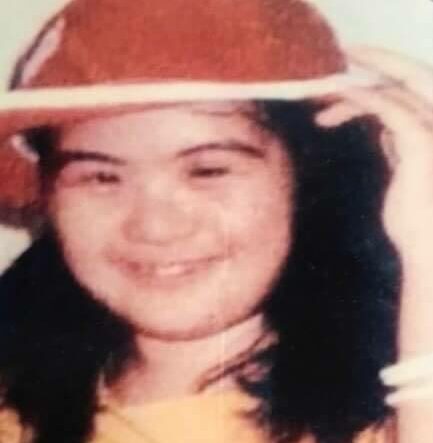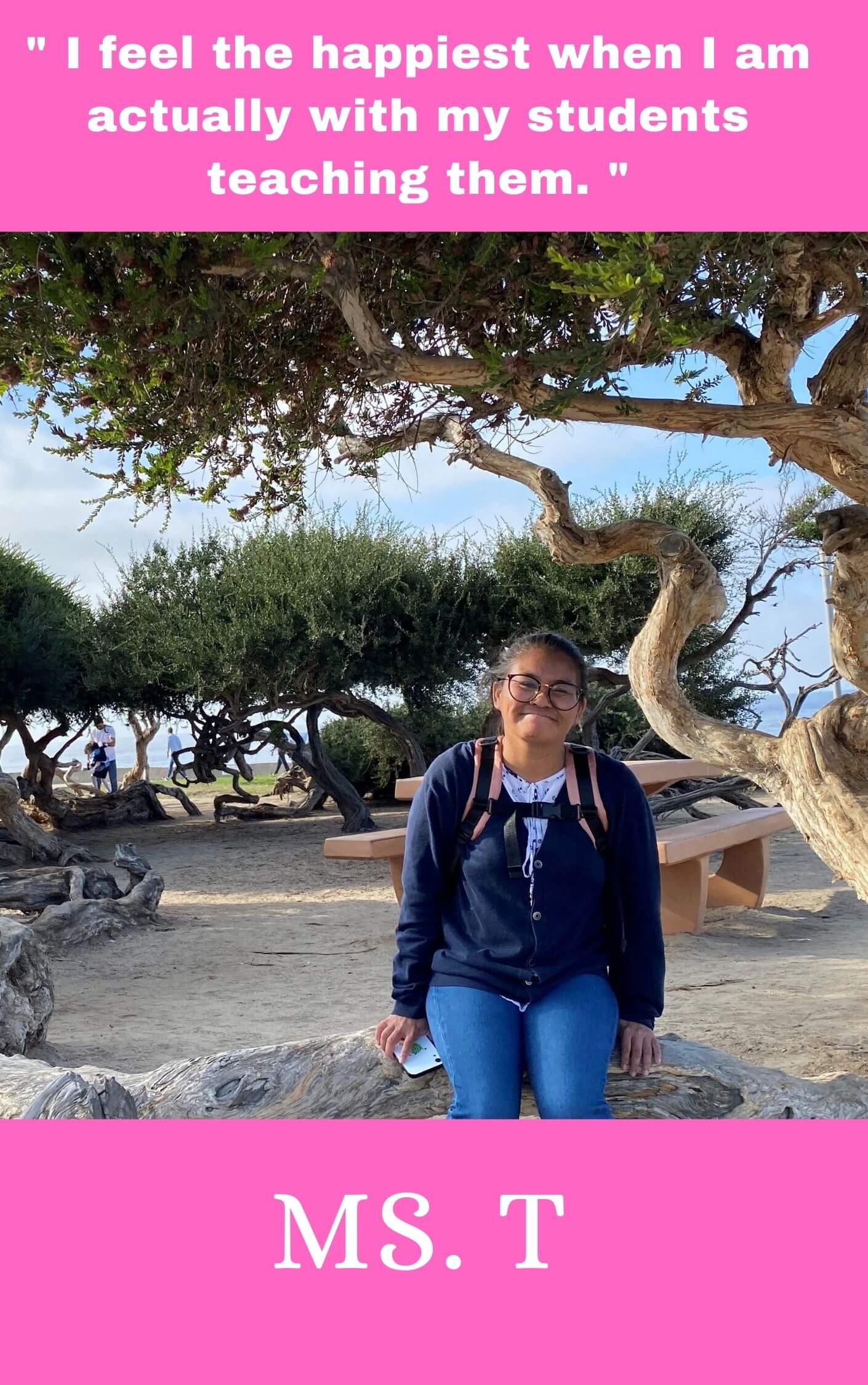Inside: She did not plan on becoming one, but believes that “destiny” brought her to this profession. Learn from our guest on how to become a Special Ed teacher effectively and enjoy being one.
With her last name starting with this specific letter, she is fondly called Ms. T by her students.
Her idea or her students? We never know, but one thing’s sure, she loves it when she enters the room, and they greet her, ” Good morning, Ms. T,” with a wide grin, or they ask her, ” How’s your day Ms. T, “ out of nowhere, or ” Bye, Ms. T,” at the end of the school day.
Read on with her narrative.
How many years have you been teaching?
” Currently, this is my seventh year. For the first five years, I have mainly taught early intervention. Now, I have been molding the minds of elementary students between kindergarten and third grade.”
How long have you been a Special Education ( SpEd) teacher and what groups of special kids are you handling now?
” Since starting my teaching career, I have always been in special education.
I currently teach in the resource setting for students with mild to moderate special needs. Most of my students have specific learning delays (SLD) or other health impairments (OHI).”
What motivated you to become one?
” To be very honest, I do not know what landed me into this profession or why I took up special education in college.
If I want to be whimsical about it, we can call it “destiny” but practically speaking, I think, a lot of small (but profound) things throughout my life molded me into becoming the special education teacher that I am today.
I also come from a long line of educators on both my father and mother’s side of the family. Both my grandmothers were teachers and while they did not directly influence me to become an educator myself, I know that they were, in part, why I became a teacher. “
What is your typical day like?
” Usually, my day starts at 7:00 AM prepping for my first batch of students.
I currently have nine students, all between the ages of six and ten years old. We do English Language Arts (ELA) first thing in the morning before recess, and then Math once they come back from recess.
Afternoons are mostly spent for any catch-up activities and for one-on-one sessions with students that need more help.
At around 2 pm, I dismiss my students to their general education classes before they go home.
Since I work at a small elementary school, all teachers have end-of-the-school day duties, as well. Meaning, we help with crosswalk, car pick up and bus pick up. Then at around 2:30 PM, I go online to meet my independent study student for the day until 3 pm. Unless I have an IEP meeting scheduled for that afternoon, I go back to my room and start answering emails.
Generally, I stay an extra hour from 3:00 to 4:00 PM to prepare for the following school day and then I head home to relax, and later, go for a nice walk or jog before or during the sunset.”
Do you have any struggles or big challenges on being a SpEd teacher?
” Being a special education teacher is very challenging in itself.
I have always been told the cliché: “Oh, so you must have a lot of patience,” and it’s true. One has to have lots of tolerance, being a teacher in general, but I think more so in the field of special education.
Every day, I have to understand and address my students’ behaviors and needs; and communicate with other teachers, paraprofessionals, and parents.
It can be quite exhausting but the teaching part is never tiring. I really do enjoy teaching. I feel the happiest when I am actually with my students teaching them. “
How do you handle a very difficult child?
” It really depends. I have to be open to the child and his/her needs and how they are feeling that day. It’s like that quote from the Forrest Gump movie, “…life is like a box of chocolates. You never know what you are going to get.”
Personally, I try to go down to the child’s level and try to go to the root of the problem. Is he/she acting out because of what? Lack of sleep? Are they hungry? Did something happen at home?
There are so many factors that can contribute to the visible behavior that they are displaying.
Sometimes, I feel like an investigator or a therapist! “
Do you involve the parents in teaching their kids?
” When I was still in the Philippines and teaching early intervention, my center’s main philosophy was a holistic and family-centered approach.
Our relationship with our students’ families (not just the parents) is paramount to their child’s progress and success. Without good communication and follow-up at home, no amount of teaching at school would be as effective than if they had the support from their families.
I consider my students’ parents my co-teachers. I would tell some of my parents that they have greater time and influence over their children than I do.
I only see them a maximum of 5 hours a day. The rest of the time is with them and it really does make a difference that what they are learning in school is also being reflected at home. “
How do you feel at the end of a school day?
” I will not lie, but I am quite exhausted once I get home. The first thing I end up doing is take a nap for a good two hours at least.
And like any job, there will be good days and bad days.
When I have a particularly bad day, I often video call my best friend back home in the Philippines, and it’s nice to just talk it out with her and just converse about other things. “
Do you recall an instance when you were really happy at what you do?
” I remember a particular moment last year when I really thought I did a good job that day.
It was when I just wrapped up an IEP meeting and just as we were about to head out, both the school psychologist and my school principal told me what a great job I did during the meeting.
That really felt good! “
Any great advice on those who plan to pursue a career as a Special Ed teacher?
” When I started teaching special education, I thought it would be a challenge for sure. But I didn’t realize that took a lot of effort outside of teaching.
Being a teacher is not only about teaching your students. It’s becoming like a second parent, a therapist, a best friend, a mentor, and so much more to them.
If you are willing to do that, then I think you have what it takes to become a SpEd teacher.”
How do you de-stress after a difficult day?
” I sleep! I really try to go home and just sleep off my stress away.
Also, I exercise (jog or walk), make time for my hobbies (painting, calligraphy, macramé-ing, etc.), and go on road trips with friends and co-teachers whenever we can.”
How have you made a difference in the life of your students?
” I really find it fulfilling when I see how my students have grown throughout the years. In my line of teaching, I have the same kids over at least a three-year span, and when I see students slowly but surely blossom, I find that makes me very proud not only of my achievements but more importantly of theirs.
I really appreciate it, too, when parents come up to me and tell me that their son or daughter enjoys coming to my classroom every day.
Those are the little things that I’m delighted with and they remind me that I am making a difference in their lives.
It’s often hard to see that sometimes, but when I’m prompted of it, it can feel like the best feeling in the world.”
What is the greatest lesson that you learned from special children?
” This may sound cliché, but it truly is patience.
But with that patience I also had to learn understanding and being more accepting of my students – who they are, where they come from, what is happening around them – all these can extend my patience every single day. “
Any other words of inspiration to your fellow Special Ed teachers?
” My U.S. teaching experience has been a whirlwind of a ride. I have had to overcome many things each year since I have been here.
My first year of teaching was particularly hard emotionally and physically and then not to mention capping it off with the sudden school closure due to the pandemic.
There were many times I thought I would have quit but thankfully, I am still here and pursuing a career as a Special Education teacher.
When I do eventually return to the Philippines, I hope to impart my knowledge and my skills to my colleagues back home and integrate all of what I have learned into the therapy center that I helped put up.
If anything, I am grateful for this part of my life and I am open to many more experiences (the good and the bad) in the future. “
Truly A Passionate SpEd teacher
When her students call out her name any time of the day like ” Ms. T, look at my new dress,” ” My mom bought me a cool toy today, Ms. T, ” or the usual, ” Bye, Ms. T,” and even if she is tired, she still acknowledges all of her students’ tricks. This is how dedicated she is to her craft.
You are indeed your students’ second parent, best friend, therapist, and mentor, all rolled into one.
Thank you for sharing your story, Ms. T and for helping those little minds to learn and explore the world around them.
Though it is really challenging to learn how to become an effective Special Ed teacher, and molding your students to be the best version of themselves, they have inspired you as well, on how to be patient and understanding. A win-win situation, indeed!
Does your special one love going to school and says her or his teacher is so cool? Share your story here.




Hey Marita,
Great article! My brother is on the autism spectrum so I was able to relate to a lot of the things you wrote about. One of the biggest things that resonated with me is that the job takes patience. That is especially true in the beginning when you are still learning and getting used to someone who thinks and learns differently than most people. Overall great article!
Hi Pat,
It really takes a lot of patience and understanding, as Special Ed teachers and even with parents and caregivers, to deal with our special needs kids, like your brother.
Thanks for reading and sharing about your sibling. I hope he is fine and being the best that he can be. How old is he?
God bless,
Marita
Great article you have here and thank you for sharing such an educative experience. It’s really difficult and not everyone would have that zero tolerance when it comes to being a special education teacher. And just by reading how you handle such kids, makes you naturally unique and gifted in a special way. To that, thumbs up and keep doing the awesome work you are doing.
Hi Volkert,
Thanks for the nice words. Ms T is really a passionate Special Ed teacher who is worth emulating.
God bless,
Marita